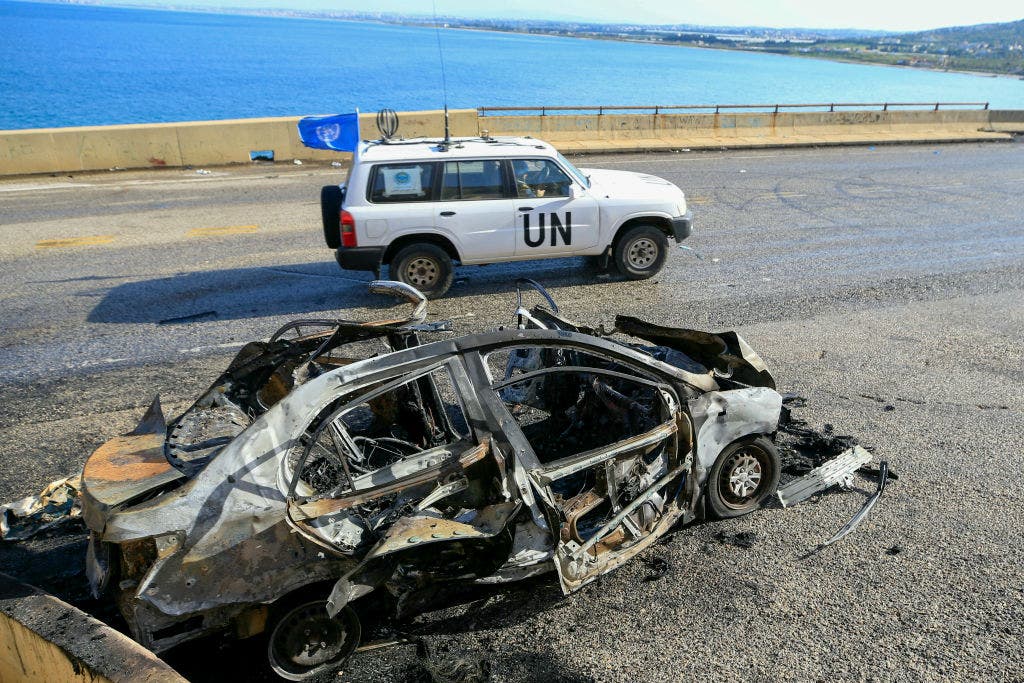The recent fragile cease-fire between Israel and Hezbollah, brokered by the United States and France, has reignited debates surrounding the effectiveness of United Nations peacekeepers in enforcing U.N. Security Council Resolution 1701. This resolution, established in 2006 to address tensions following the Lebanon War, mandated the disarmament of Hezbollah and the establishment of a buffer zone. However, the historical lack of substantial compliance raises concerns about whether the continued presence of UN peacekeepers in Lebanon will inadvertently benefit Hezbollah, an Iran-backed militant organization. The cease-fire, effective from November 27, mandates Hezbollah to withdraw north of the Litani River while Israeli forces are also expected to retreat from southern Lebanon within 60 days. Despite this significant diplomatic endeavor, both parties quickly accused each other of cease-fire violations, highlighting the complex dynamics at play.
The recent cease-fire has elicited accusations from Hezbollah, which launched projectiles at Mount Dov, claiming Israeli violations. Israeli Prime Minister Benjamin Netanyahu condemned their actions as a serious breach and reiterated Israel’s determination to respond to any violations, emphasizing the unpredictable nature of cease-fire enforcement. The cease-fire’s de-escalation processes will be monitored by a five-nation committee led by the U.S., with envoy Amos Hochstein characterizing this effort as a “game-changer.” Yet, analysts remain skeptical of the degree to which UNIFIL can enforce changes to the longstanding dynamics in southern Lebanon, especially given Hezbollah’s historical maneuvers to circumvent previous resolutions.
Former U.S. counterterrorism official Javed Ali has highlighted UNIFIL’s complex challenges in enforcing the latest iteration of UNSCR 1701. Ali pointed to the mandate given to both the Lebanese Army and UNIFIL to ensure Hezbollah does not reestablish its military infrastructure below the Litani River. The historical context of UN peacekeeping efforts, with notable failures in regions like Somalia and Rwanda, illustrates the limitations of such operations amid intense armed conflicts, especially in areas marked by intricate ethnic and sectarian divisions. This context raises questions about UNIFIL’s readiness and capability to oversee compliance effectively this time around.
Firsthand accounts from recent clashes in southern Lebanon further illustrate the challenges faced by UNIFIL. In the village of Houla, Israeli soldiers encountered Hezbollah fighters while a U.N. convoy unexpectedly traversed the conflict zone, raising suspicions of coordination with militant groups. The presence of UNIFIL is met with distrust from Israeli forces, who express concerns that they have observed Hezbollah exploiting U.N. convoys to gather intelligence and increase their operational capacity close to the Israeli border. Instances where Hezbollah has allegedly set up operations near UNIFIL bases deepen the narrative of inadequacy, with claims of tunnels and weapon stockpiles discovered obstructively close to peacekeeper positions.
Despite these accusations, UNIFIL maintains that its role is to monitor and report on compliance with Resolution 1701 rather than enforce it militarily or disarm Hezbollah forcibly. However, the existing dynamics—marked by Hezbollah’s fortification efforts and the continuous increase in rocket attacks on Israeli targets from areas near UNIFIL positions—cast doubt on the organization’s claims of maintaining peace. Hezbollah’s operational developments since the 2006 resolution have notably circumvented many of its terms, creating a precarious situation where the group reportedly possesses extensive military capabilities just a short distance from peacekeeper outposts.
As tensions heighten, Israeli officials express apprehension that Hezbollah’s growing military presence in southern Lebanon could lead to renewed conflict, despite the temporary cease-fire providing a short-lived reprieve. The ongoing scrutiny of UNIFIL’s effectiveness and the multitude of cease-fire violations serve as stark reminders of the fragility of peace in the region. The complex interplay between UN peacekeepers, Hezbollah’s military ambitions, and Israeli security measures will dictate the situation’s trajectory as both regional and international actors grapple with the legacy of unanswered questions surrounding peacekeeping efficacy in a region fraught with deeply rooted animosities.

